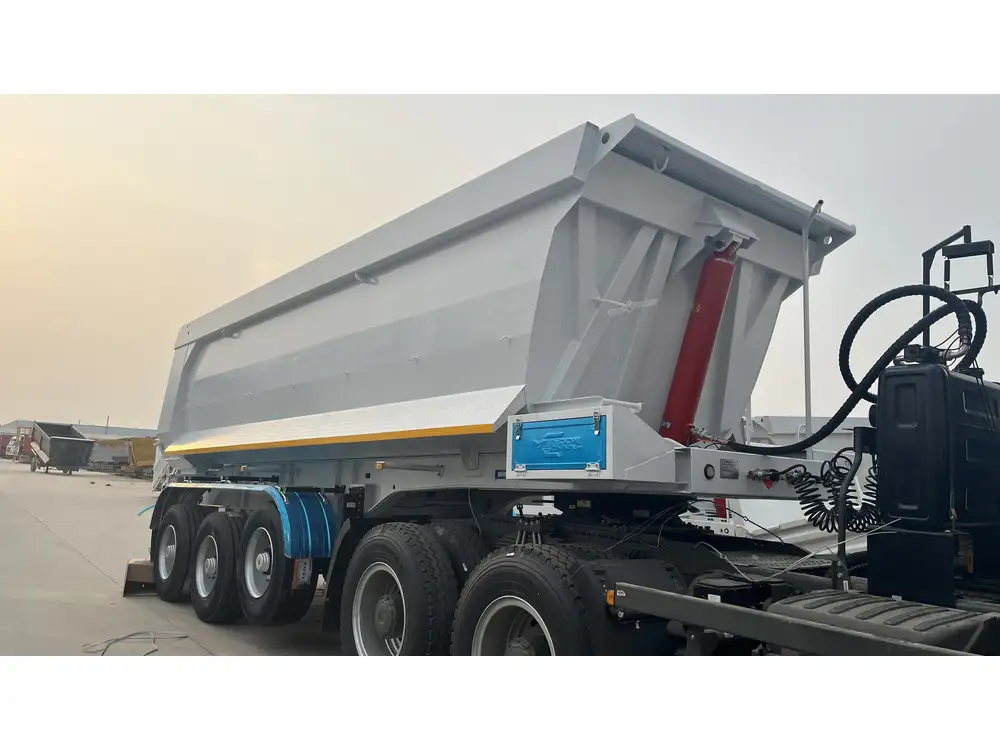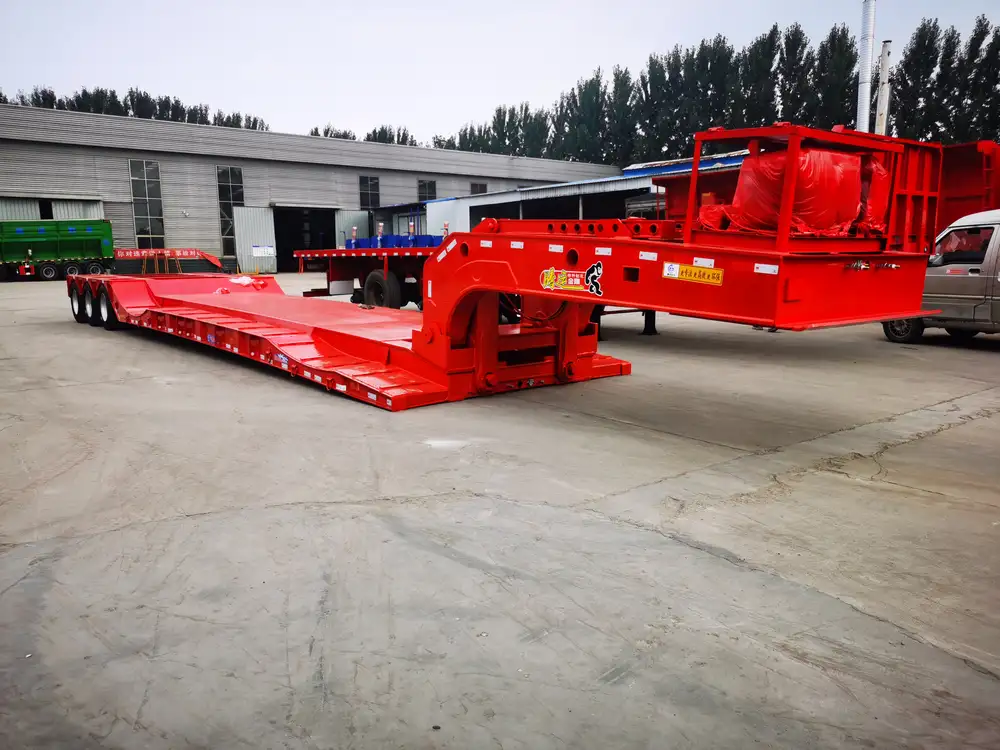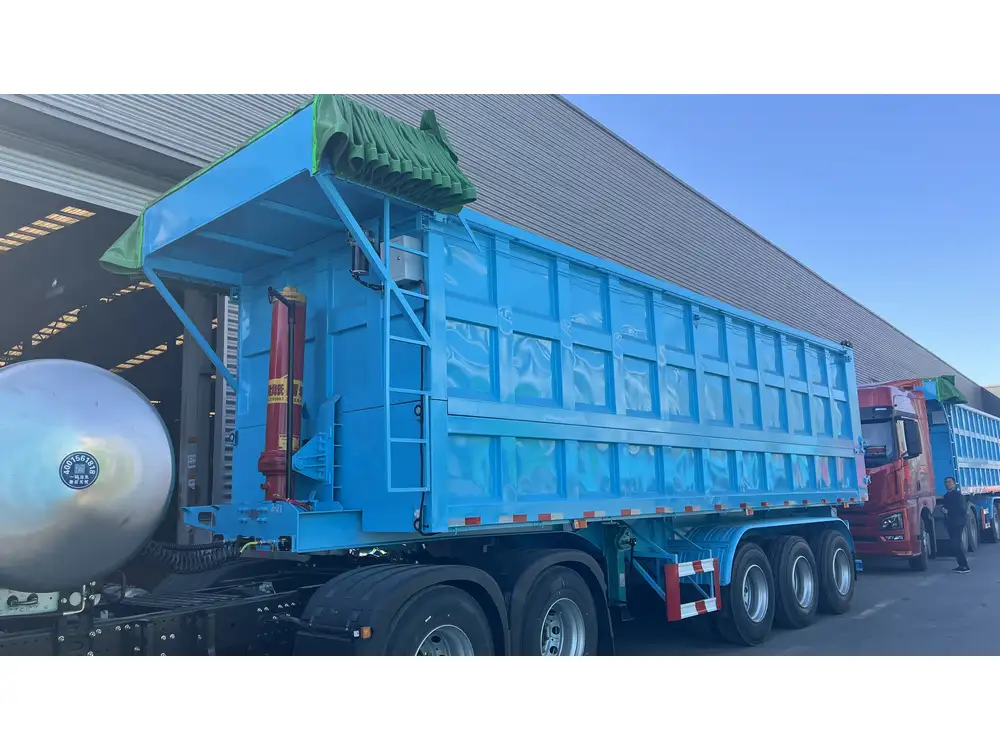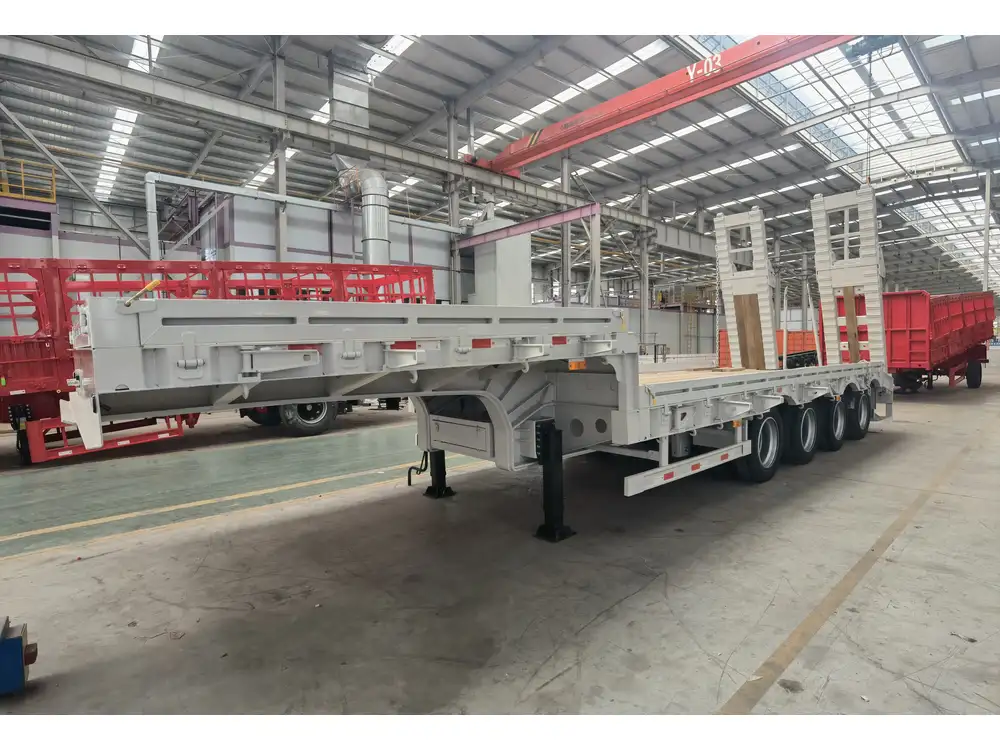In the realm of transportation and logistics, the demand for effective and adaptable equipment is ever-growing. Among the pivotal players in this domain is the light duty skeletal trailer—a robust solution tailored to meet the needs of modern hauling requirements. This guide delves deep into the specifications, advantages, and applications of light duty skeletal trailers while examining how they can optimize your operational efficiency.
What is a Light Duty Skeletal Trailer?
A light duty skeletal trailer is a specialized type of trailer primarily designed for transporting containerized cargo. Unlike traditional trailers, they feature a minimalist frame structure that supports ISO containers’ weight securely. Their lightweight design contributes to enhanced fuel efficiency and increased payload capacity, making them an ideal choice for businesses prioritizing sustainability and cost-effectiveness.
| Feature | Description |
|---|---|
| Weight Capacity | Up to 30 tons, varying by manufacturer |
| Frame Material | High-strength steel for durability |
| Container Compatibility | ISO-standard containers |
| Design | Open skeletal frame for easy loading/unloading |
| Tire Configuration | Typically dual axle for balanced weight distribution |
Key Advantages of Light Duty Skeletal Trailers

1. Minimization of Weight
The primary advantage of light duty skeletal trailers lies in their lightweight construction. This design not only affords a higher payload capacity but also substantially reduces fuel consumption. Truck fleets can operate more efficiently, maximizing the tons transported per trip.
2. Versatility
These trailers are exceptionally versatile. They can accommodate various container sizes—20ft, 40ft, and even 45ft containers—making them suitable for diverse shipping needs. Whether transporting goods across short distances or long-haul journeys, light duty skeletal trailers adapt seamlessly to the task at hand.
3. Ease of Loading and Unloading
The open structure of the skeletal trailer facilitates straightforward loading and unloading, crucial for time-sensitive operations. The design allows forklifts or cranes to operate freely without obstructions, drastically reducing idle time at loading docks.

4. Cost Efficiency
Investing in light duty skeletal trailers translates to substantial savings in operational costs over time. Their lightweight nature rises the potential for more payload capacity, directly impacting shipping costs. Moreover, their durability often results in fewer repairs and longer service life, enhancing ROI.
5. Environmentally Friendly Option
With the paradigm shift towards sustainability in transportation, using light duty skeletal trailers contributes positively to a company’s environmental footprint. Lower fuel consumption not only translates to cost savings but also reduces carbon emissions, aligning with global sustainability goals.
Applications of Light Duty Skeletal Trailers

1. Intermodal Transport
Light duty skeletal trailers shine in intermodal transport scenarios where containers are shifted seamlessly between different modes of transportation—road, rail, and shipping. Their capability to house ISO-standard containers makes them pivotal in streamlining logistics in multi-modal transportation networks.
2. Urban Deliveries
In urban environments where road restrictions and congestion can impact logistics, the lightweight and compact nature of light duty skeletal trailers makes them an optimal solution. They can navigate tight spaces efficiently, making them suitable for last-mile delivery operations.
3. Construction Materials Transport
Contractors and suppliers often require the movement of heavy construction materials. Light duty skeletal trailers provide an effective method to transport prefabricated materials or containers filled with tools and equipment, facilitating timely project completion.
| Industry | Application Area | Benefits |
|---|---|---|
| Intermodal Transport | Rail and Road Logistics | Streamlined transitions between transport modes |
| Urban Deliveries | Last-Mile Logistics | Enhanced maneuverability and access |
| Construction | Material Supply | Timely deliveries reducing project delays |

Choosing the Right Light Duty Skeletal Trailer
When selecting the appropriate light duty skeletal trailer, several considerations come into play:
1. Payload Requirements
Determine the expected payload—knowing the typical weight of containers you’ll be transporting ensures the selected trailer meets or exceeds capacity expectations.
2. Frame Construction
Evaluate the materials used in the trailer’s construction. High-strength, lightweight steel offers the perfect balance between durability and weight, thus optimizing payload capacity.

3. Axle Configuration
Consider your axle configuration requirements. Dual axle setups are typical for light duty skeletal trailers; however, variations exist based on customer needs and vehicle compatibility.
4. Compatibility with Existing Equipment
Ensure that the selected skeletal trailer is compatible with existing logistics operations, including hoisting equipment, tugs, and truck configurations.
5. Manufacturer Support and Service
Choose a manufacturer known for their reliability and customer support. The warranty, parts availability, and service options can significantly influence the long-term value of your investment.

Maintenance Tips for Light Duty Skeletal Trailers
Regular maintenance is crucial to keeping light duty skeletal trailers in optimal working condition. Below are essential tips to ensure longevity and performance:
1. Routine Inspections
Conduct regular inspections focusing on critical components such as the frame, axle, braking system, and tires. Check for signs of wear and tear or any structural damage.
2. Tire Maintenance
Maintaining proper tire pressure not only enhances fuel efficiency but also ensures even weight distribution. Regularly inspect tread depth and alignments to promote safety and performance.

3. Brake System Checks
Brakes are vital for safety. Regularly test and maintain the braking system to ensure optimal performance under varying load conditions.
4. Lubrication
Keep all moving components well-lubricated to avoid wear and seizing, reducing maintenance costs while enhancing operational efficiency.
5. Cleaning and Corrosion Prevention
Cleaning the trailer, especially after transporting corrosive materials, helps prevent rust and deterioration. Consider applying protective coatings to reduce exposure to harsh environments.

The Future of Light Duty Skeletal Trailers
The trajectory for light duty skeletal trailers is promising. As industries strive for sustainability, manufacturers are innovating lighter materials and advanced designs, further optimizing fuel efficiency and payload capabilities. Anticipated trends include:
1. Smart Technology Integration
Technological advancements will likely lead to the integration of smart sensors, enabling real-time data on loads, routes, and maintenance needs. This data-driven approach will further enhance efficiency and safety within logistics operations.
2. Enhanced Customization
Manufacturers may offer more customizable options, allowing businesses to tailor skeletal trailers to unique operational requirements. This adaptation will ensure optimal performance for specific industries.

3. Focus on Sustainability
With a global emphasis on reducing carbon footprints, skeletal trailers may evolve to incorporate eco-friendly materials and designs, aligning with green logistics initiatives.
Conclusion
Light duty skeletal trailers are undeniably vital components of modern transportation and logistics. Their unique design offers unparalleled versatility, efficiency, and cost-effectiveness for various industries. By understanding the advantages, applications, and maintenance considerations associated with these innovative trailers, businesses can leverage their full potential, optimizing operations while remaining attuned to sustainability goals.
Explore your options in light duty skeletal trailers with us today, and elevate your logistical efficiency to new heights. Highlighting robust design, adaptability, and a commitment to quality, we stand ready to support your operational needs in the ever-evolving world of transportation.



